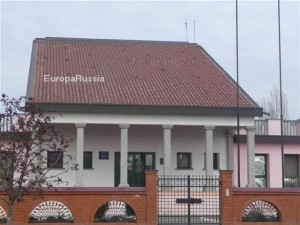Archive for September, 2013
Москва – не Россия.
25 Sep 2013 Москва поднимается все выше в рейтинге самых богатых и шикарных городов планеты, утверждает ABC. По числу мультимиллионеров – первое место в мире, по количеству автомобилей (4 млн на 12 млн жителей) – первое место среди европейских столиц, приводит статистику журналист Рафаэль М.Манюэко. 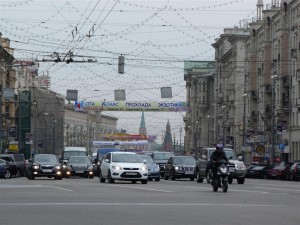
Санкт-Петербург сильно отстает от Москвы, а ее отличия от других крупных российских городов, по мнению автора, “практически непреодолимы”. Корреспондент разъясняет: в Москве сосредоточено 8,5% населения России и более 80% финансовых ресурсов. “Почти все деньги от продажи сырья оседают в столице”.
Круглосуточные магазины и рестораны, экзотические продукты, динамичная и гламурная ночная жизнь, доступ к wi-fi в кафе, метро и парках. “Изобилие дорожек для велосипедистов или конькобежцев, особенно в парках”, – утверждает автор.
По мнению испанского журналиста, сегодня Москва великолепна как никогда в своей истории. “Москвичи гордятся превращением города в грандиозную витрину, хотя это ничуть не отражает реальную жизнь в остальной стране”, – говорится в статье.
Впрочем, Манюэко перечисляет и минусы: транспортные пробки, загрязнение окружающей среды. “Это один из самых дорогих городов мира, притом что средний уровень доходов сильно отстает от показателей ЕС”, – пишет автор. Дорожные работы проводятся весь год, и “это важный источник дохода для коррумпированных чиновников”, добавляет автор.
Не хватает небольших магазинов: всюду только супермаркеты и бутики. Общественный транспорт, за исключением метро, не отвечает запросам огромного города. Все эти недостатки обещал исправить кандидат в мэры Алексей Навальный, но большинство москвичей проголосовало за Собянина, сообщает своим читателям Манюэко.
Статья – Рафаэль М.Манюэко Инопресса – Artículo original – Rafael M. Mañueco Moscù no es Rusia ABC 24.09.2013
Смотри
Gabriel García Márquez. Moscú 1957, “la aldea más grande del mundo”. Daniel Utrilla, El Mundo
Grandi manifestazioni sul Don per il 20esimo anniversario della costruzione dell’Asilo a Rossosch, Voronezhskaja oblast (circa 750 chilometri a sud da Mosca). Quasi un migliaio di alpini con le loro famiglie sono giunti in queste terre lontane per celebrare la ricorrenza.
Come si ricorderà, la struttura fu costruita sul luogo, dove sorgeva il Comando alpino durante la Seconda guerra mondiale. Subito dopo la caduta del Muro di Berlino gli italiani sono tornati quaggiù, dove migliaia di connazionali riposano in pace.
La costruzione dell’Asilo, al cui interno si trova il Museo del Medio Don – diretto dal prof. Alim Morozov, è stato l’ulteriore dimostrazione della riappacificazione tra i due popoli divisi dalla tragedia della guerra voluta dagli opposti totalitarismi.
Il centro dei festeggiamenti è l’Asilo. E’ previsto anche un concerto in piazza Lenin, con la partecipazione di un coro degli alpini ed artisti locali. Gli ospiti italiani hanno visitato venerdì le rive del Don distanti alcune decine di chilometri ad est da Rossosch e domenica Nikolajewka (oggi Livenka), circa 150 chilometri ad ovest del capoluogo provinciale.
Giuseppe D’Amato
The Cabinet of Ministers approved the draft Association Agreement between Ukraine and the European Union and its member states.
“It just became known that the government had approved the draft Association Agreement with the EU,” a government spokesman told journalists in Kyiv. The government published the draft agreement on the Web site of the Cabinet of Ministers in August 2013. 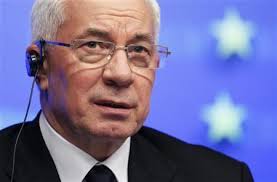
The 236-page document comprises of seven sections and 486 articles, some of which deal with the media activities, protection of personal data, protection of intellectual property, and other issues.
According to the draft agreement, the aims of association are to promote a gradual rapprochement between the parties based on common values and close and privileged links, and increasing Ukraine’s association with EU policies, and participation in programs and agencies, establish conditions for enhanced economic and trade relations leading towards Ukraine’s gradual integration in the EU internal market including by setting up a Deep and Comprehensive Free Trade Area, as well as to enhance cooperation in the field of justice, freedom and security with the aim of reinforcing the rule of law and the respect for human rights and fundamental freedoms.
Ukraine and the EU started negotiations on new agreement in 2007. The parties initialled an Agreement on association and profound and overall free trade area on March 30, 2012.
Ukrainian Prime Minister Mykola Azarov said the agreements, which should be signed at a November summit in Lithuania, raised the prospect of “a European quality of life” for the ex-Soviet republic.
“We believe we must make every effort for Yulia Tymoshenko to be freed before the Vilnius summit,” Iryna Gerashchenko, a deputy for the opposition party UDAR, told Interfax-Ukraine.
“Even though the signing is important to the EU and Ukraine, the EU will never be able to close its eyes to the violation of fundamental values such as human rights, including the right of defense in a court and the right to justice,” she said.
From Unian and Interfax-Ukraine
G20 LEADERS DECLARATION, Saint Petersburg 2013.
12 Sep 2013Preamble
1. We, the Leaders of the G20, met in St Petersburg on 5-6 September 2013, united by our continued commitment to work together to strengthen the global economy.
2. Strengthening growth and creating jobs is our top priority and we are fully committed to taking decisive actions to return to a job-rich, strong, sustainable and balanced growth path.
3. In the five years since we first met, coordinated action by the G20 has been critical to tackling the financial crisis and putting the world economy on a path to recovery. But our work is not yet complete and we agreed that it remains critical for G20 countries to focus all our joint efforts on engineering a durable exit from the longest and most protracted crisis in modern history.
4. Our most urgent need is to increase the momentum of the global recovery, generate higher growth and better jobs, while strengthening the foundations for long-term growth and avoiding policies that could cause the recovery to falter or promote growth at other countries’ expense.
5. We understand that sound and sustainable economic growth will be firmly based on increased and predictable investments, trust and transparency, as well as on effective regulation as part of the market policy and practice.
6. As Leaders of the world’s largest economies, we share responsibility for reinforcing the open and rules-based global economic system. We are committed to working cooperatively to address key global economic challenges:
– Achieving a stronger recovery while ensuring fiscal sustainability. We have today agreed the St Petersburg Action Plan, which sets out our strategies to achieve strong, sustainable and balanced growth.
– Unemployment and underemployment, particularly among young people. We are united in the resolve to achieve better quality and more productive jobs. Coordinated and integrated public policies (macroeconomic, financial, fiscal, education, skills development, innovation, employment and social protection) are key to reach this goal. We today committed to continue our efforts to support inclusive labour markets, with the exchange of country-specific plans or sets of actions, developed as appropriate according to our different constitutional circumstances.
– Importance of long-term financing for investment, including for infrastructure and SMEs to boost economic growth, job creation and development. Today we endorsed the work plan that helped us to assess factors affecting the availability and accessibility of long-term financing for investment and committed to identify and start to implement a set of collective and country-specific measures that tangibly improve our domestic investment environments.
– Free and rules-based trade fosters economic opportunities. We stress the crucial importance of strong multilateral trading system and call on all the WTO members to show the necessary flexibility and reach a successful outcome in this year’s multilateral trade negotiations. We extend our commitment to refrain from protectionist measures and aim at enhancing transparency in trade, including in regional trade agreements.
– Cross-border tax evasion and avoidance undermine our public finances and our people’s trust in the fairness of the tax system. Today, we endorsed plans to address these problems and committed to take steps to change our rules to tackle tax avoidance, harmful practices, and aggressive tax planning.
– We have agreed and are implementing a broad range of financial reforms to address the major fault lines that caused the crisis. We are building more resilient financial institutions, making substantial progress towards ending too-big-to-fail, increasing transparency and market integrity, filling regulatory gaps and addressing the risks from shadow banking. We will pursue our work to build a safe, reliable financial system responsive to the needs of our citizens.
– G20 countries have a responsibility to ensure that all people have an opportunity to gain from strong, sustainable and balanced growth. We endorse the St Petersburg Development Outlook to focus our efforts on concrete steps to improve food security, financial inclusion, infrastructure, human resource development and domestic resource mobilization.
– Corruption impedes sustainable economic growth and poverty reduction, threatening financial stability and economy as a whole. We will hold ourselves to our commitment to implement the G20 Anti-Corruption Action Plan, combating domestic and foreign bribery, tackling corruption in high-risk sectors, strengthening international cooperation and promoting public integrity and transparency in the fight against corruption. Recognizing the need for sustained and concerted efforts we endorse the St Petersburg Strategic Framework.
– We share a common interest in developing cleaner, more efficient and reliable energy supplies, as well as more transparent physical and financial commodity markets. We commit to enhance energy cooperation, to make energy market data more accurate and available and to take steps to support the development of cleaner and more efficient energy technologies to enhance the efficiency of markets and shift towards a more sustainable energy future. We underscore our commitment to work together to address climate change and environment protection, which is a global problem that requires a global solution.
– We will continue to develop comprehensive growth strategies to achieve stronger, more sustainable and balanced growth in the context of fiscal sustainability.
7. Too many of our citizens have yet to participate in the economic global recovery that is underway. The G20 must strive not only for strong, sustainable and balanced growth but also for a more inclusive pattern of growth that will better mobilize the talents of our entire populations.
Saint Petersburg Summit
5-6 September 2013
Kashagan, first oil volumes produced.
11 Sep 2013 The North Caspian Operating Company (NCOC) has reported the first oil has been extracted from Kazakhstan’s massive offshore Kashagan field.
The Kashagan field in the Caspian Sea has an estimated 4.8 billion tons of oil reserves as well as natural gas. 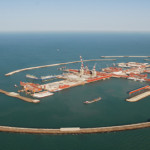
Production at the site is years behind schedule.
Partners in the NCOC are KazMunaiGaz, Italy’s Eni, France’s Total, the Anglo-Dutch company Royal Dutch Shell, the U.S. company ExxonMobil, and Japan’s Inpex.
Kazakhstan recently used its preemptive right to purchase a 8.45 percent share from ConocoPhillips and reports indicate Kazakh authorities will sell that stake to the China National Petroleum Corporation.
Turkmenistan – China, new gas agreements.
10 Sep 2013 The Chinese and Turkmen presidents announced the completion of the first phase of the Galkynysh gas field, which will supply gas to China.
China National Petroleum Corporation also signed a new contract to import gas from Galkynysh” the world’s second-largest gas field” a deal experts said will ensure China’s growing natural gas supply and help Turkmenistan secure a stable buyer.
President Xi Jinping and his Turkmen counterpart Gurbanguly Berdymukhamedov attended the ceremony marking the start of operation of three processing plants at Galkynysh in South Turkmenistan.
Insiders told China Daily that each plant has an annual output of 10 billion cubic meters of gas.
A plant jointly developed by China National Petroleum Corporation will send its products entirely to China, and some gas from the other two plants is also likely to be sent to China.
Turkmenistan is China’s largest supplier of natural gas, and China is the largest overseas market for Turkmenistan’s natural gas.
Xi and Berdymukhamedov said that the annual transport of 65 billion cubic meters of natural gas from Turkmenistan to China by 2016 will be ensured through the world’s longest natural gas pipeline.
In 2009, the two nations put into operation a pipeline of more than 8,000 km to bring vital energy supplies through China’s western region.
China imports about 40 billion cubic meters a year from Turkmenistan.
According to insiders, most of the newly added 25 billion cubic meters will be from Galkynysh.
China National Petroleum Corporation, the country’s largest energy producer, announced that it had signed an agreement with Turkmenistan to import 25 billion cubic meters of natural gas annually.
“By Sept 3, the total quantity of China’s natural gas import contracts were about 119.6 billion cubic meters (excluding the new contract of 25 billion cubic meters with Turkmenistan), which means that there is still a big shortage for China’s natural gas imports,” said Wang Ruiqi, a senior analyst with ICIS Energy.
She said the new contract with Turkmenistan will ensure China’s natural gas supply.
Turkmenistan holds the world’s fourth-largest natural gas reserves and possesses vast reserves of oil. It is estimated that 400 million people in China benefit from natural gas from Turkmenistan.
Full Article From China Daily Sept. 5th, 2013.
C’è anche la “risorgente” Russia nella partita mediorientale e con lei bisogna fare i conti. Non solo al Consiglio di Sicurezza dell’Onu ma anche in campo militare. Se il regime di Bashar Assad è ancora al potere un non piccolo merito lo si può attribuire a Vladimir Putin. 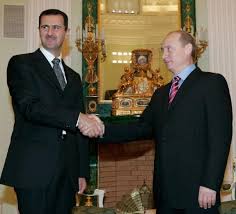
Mosca si è incaponita nella difesa del suo storico alleato siriano per due fondamentali ragioni, entrambi di carattere geostrategico.
La prima è che, una volta caduta Damasco, dopo toccherà all’Iran. I russi vedrebbero gli occidentali avvicinarsi tremendamente alle frontiere meridionali ex sovietiche. A chi farebbe piacere avere come vicino un ex avversario della Guerra Fredda che porta il nome di Nato, ossia Alleanza atlantica?
La seconda ragione è che più si impegnano gli occidentali in scenari lontani da casa più si ritarda la loro infiltrazione nel cuore degli interessi del Cremlino, nel cortile di casa, lo spazio ex sovietico.
Considerazioni di ordine pubblico interno, poi, non sono secondarie. Per tutti gli anni Novanta i russi hanno combattuto contro l’estremismo religioso islamico che ha infuocato il Caucaso settentrionale ed ha rischiato di mettere radici persino nel “ventre mollo” del gigante slavo, lungo il corso del Volga, nelle repubbliche ricchissime di petrolio del Tatarstan e della Bashkiria.
Aleppo è a solo 900 chilometri dal Caucaso. Se la Siria capitolasse da lì potrebbero arrivare nuovi mujaheddin, già sconfitti in passato in Cecenia, o semplici mullah a predicare ai circa 20 milioni di musulmani russi un tipo di Islam non più secolare come quello ex sovietico. Il numero di donne che portano oggi il velo in Russia è già aumentato enormemente, tanto che per il nuovo anno scolastico sono diventate obbligatori grembiuli e vestiti elencati in liste “dress code”.
L’aspetto economico-commerciale nella posizione del Cremlino sullo scenario mediorientale è altrettanto importante. La Siria compra da decenni miliardi di dollari in armi russe, mentre l’Iran ha acquistato da Mosca tecnologia nucleare.
Nelle scorse settimane è filtrata la notizia, non confermata chiaramente, che il principe saudita Bandar al Sultan, capo dei servizi segreti sauditi, abbia offerto 15 miliardi di dollari per convincere Vladimir Putin ad abbandonare Assad. Riad vorrebbe diventare un acquirente di armi russe sofisticate, che, secondo le intelligence israeliana ed occidentali, sono state, comunque, consegnate ad Assad, malgrado i vari divieti internazionali. In primo luogo le difesa aeree anti-missilistiche S-300 e quelle navali, che costringeranno le unità americane a starsene lontano dalle coste.
Il fronte dell’opposizione avrebbe promesso, tra l’altro, di lasciare ai russi l’uso del porto di Tartus, utilizzato come scalo nel Mediterraneo, evitando il passaggio sul Bosforo.
Il Cremlino per ora fa spallucce. Se dopo la Siria cadesse anche l’Iran gli occidentali avrebbero la possibilità di rivoluzionare il mercato energetico. Finalmente si troverebbe il gas sufficiente, necessario per ridare vita al progetto Nabucco e l’Europa sarebbe ancora meno dipendente dalle forniture russe.
In sintesi, Mosca sta combattendo in Medio Oriente una battaglia strategicamente vitale. In palio vi è il suo status di potenza regionale in questa porzione di mondo.
Una sua squadra navale, proveniente dal Pacifico, è arrivata nelle scorse settimane in zona. La sua potenza di fuoco è infinitamente inferiore a quella statunitense. Il suo compito è duplice: essere pronta ad evacuare i circa 20mila connazionali; mostrare all’opinione pubblica che la Russia è ancora viva.
Putin conosce bene i limiti del suo Paese e non andrà oltre. Sa perfettamente che la Russia post ’91 non è nemmeno lontana parente dell’Unione Sovietica della Guerra Fredda.
Giuseppe D’Amato
«Ах, как их в германской политике не хватает! Настоящих героев. Красивых, умных, с биографией, которую можно переписать в сценарий для большого кино… 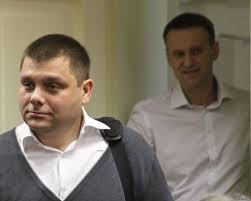
Тут России везет больше всего. У вас есть не только Владимир Путин, но и Кадыров-младший, Ксения Собчак или Михаил Ходорковский. А сейчас появился новый яркий персонаж — Алексей Навальный. Высокий голубоглазый блондин с широкими плечами. Долгие годы он боролся против коррупции, человек слова и дела. В соцреализме таких называли положительными героями. Гнилая власть Навального боится, осудила по делу «Кировлеса» при скверном до абсурда обвинении как мошенника, но после приговора неожиданно отпустила….
Навальный, кажется, мужик что надо. Богатырь, способный убить дракона путинской политической монополии. Похож на Ельцина горбачевского периода. «Прет как бык». Новая надежда для всех либералов-западников России.
Но кое-что не ладится с молодым господином Навальным. После того как я слышал блестящие контраргументы, которыми он клал на лопатки одного свидетеля обвинения за другим, я был неприятно удивлен до смешного примитивной предвыборной риторикой Навального — кандидата в мэры. Который объясняет преступность в Москве еще и тем, что промышленные альпинисты, которые срывают баннеры за Навального с балконов, гастарбайтеры-узбеки, одновременно присматриваются, что бы можно украсть из квартир москвичей.
Конечно, голосовать за или против Навального — это не мое дело. И, конечно, Россия, как известно, не Запад. Те, кто находил на «Ютьюбе» ролик по поисковым словам «Навальный мухобойка», знают, что даже австрийский национал-популист Йорг Хайдер по сравнению с Навальным являлся образцом политкорректности….
В России его называют либералом, а в Германии, наверное, обозвали бы расистом.
Суд по «Кироволесу» Навальный, как до него множество революционеров всех мастей, воспринимал как ораторскую трибуну. Получилось блестяще. Однако нравственный пик этого суда все-таки покорил не он. Слова, после которых побледнел не только судья, но и прокуроры, прозвучали из других уст.
Это было выступление его соседа по скамье подсудимых — предпринимателя Петра Офицерова, который попал под суд в качестве бывшего делового партнера Навального. Он тогда объяснил, что каждый в этом зале отлично знает, что он не виноват. И что ему в начале следствия дали понять, что он может спасти свою шкуру, дав нужные показания против Навального. Но он как мужчина отвечает за свои поступки: «Когда дети потом, через много лет, спросят меня, что это было, что я им должен буду ответить?» Короче, Офицеров шел под суд не ради политических убеждений, славы или карьеры, а ради собственной совести… »
Статья – Штефан Шолль Московский Комсомолец Московский Комсомолец № 26323 от 3 сентября 2013 г. Stefan Scholl Moskovskij Komsomolets.
G20 Leaders’ Summit. The programme.
5 Sep 2013On September 5-6, 2013 the G20 Leaders’ Summit will be held in St.Petersburg. The Summit, which is the culmination of the Russian Presidency year, will mark the 5th anniversary of the G20 at the Leaders’ level. 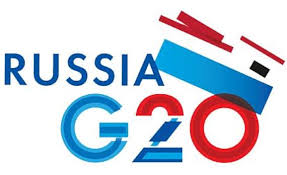
The key objective of the G20 at this moment, given the continuing instability at the financial markets, unemployment remaining high and persistent global imbalances, is fostering strong, sustainable and balanced growth. To get closer to attaining this goal, Russia has set forth a number of tasks for the G20 to stimulate economic growth and job creation, primarily through encouraging long-term investment, ensuring trust and transparency at the markets and enhancing effective regulation.
Leaders’ attention at their forthcoming meeting will be mainly focused on the issues of ensuring economic growth and financial stability, quality job creation and tackling unemployment, searching for the new sources of growth and investment financing, as well as strengthening multilateral trade and international development assistance.
The G20 Leaders will also take into account the recommendations elaborated by the Business 20, Civil 20, Labour 20, Think 20 and Youth 20 throughout the year of the Russian presidency. In addition, Leaders will meet with representatives of the business community and labour unions on the sidelines of the Summit.
The 2-day-long G20 Leaders’ Summit will result in the adoption of the G20 Leaders Joint Statement that will reflect the G20’s intentions and concrete mechanisms for further work on stimulating strong, sustainable and balanced growth.
Priorities of Russia’s G20 presidency in 2013
The core objective of the Russian Presidency is to concentrate the efforts of G20 – forum of the world’s largest economies – on developing a set of measures aimed at boosting sustainable, inclusive and balanced growth and jobs creation around the world.
Addressing major challenges to global economy is a traditional focus of the G20 agenda. Russia will ensure continuity of the dialogue on all its items and attach extra impetus to the G20 discussion, facilitating further implementation of the G20 commitments and building on the achieved results.
Russia believes that discussion on all the interconnected issues of the G20 agenda is organized around three overarching priorities, aimed at starting the new cycle of economic growth:
– Growth through quality jobs and investment;
– Growth through trust and transparency;
– Growth through effective regulation.
These 3 priorities of the Russian Presidency will serve as a lens through which we propose to consider and discuss the G20 agenda in 2013, comprised of the 8 areas:
1) Framework for strong, sustainable and balanced growth;
2) Jobs and employment;
3) International financial architecture reform;
4) Strengthening financial regulation;
5) Energy sustainability;
6) Development for all;
7) Enhancing multilateral trade;
8) Fighting corruption.
Russia – Stati Uniti e lo scoglio siriano.
4 Sep 2013 Qualsiasi decisione rischia di essere sbagliata. Il pericolo di passare dalla padella alla brace è dietro l’angolo. Ma lo si sapeva fin dallo scoppio della crisi, purtroppo. La “palude” siriana, con il suo crogiuolo etnico e confessionale, non ha forse vie d’uscita. 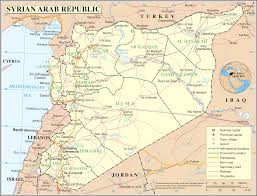
Non sorprende che alcuni autorevoli commentatori conservatori americani sostengano, ancor oggi, che sarebbe necessario intervenire soltanto in un futuro all’apparenza non prossimo, quando i fronti belligeranti – pro e contro Assad – cadranno prostrati a terra dalla fatica. Tradotto volgarmente: che si scannino pure, tanto laggiù non c’è il petrolio!
Sono troppe le partite che si giocano contemporaneamente, in Siria. Le principali sono tre. Una interna al mondo islamico, già osservata in Iraq, con i sunniti contro gli sciiti. Una esterna, geostrategica, in cui su un campo si fronteggiano occidentali e russo-cinesi e su un altro le potenze regionali emergenti (Arabia Saudita, Qatar, Turchia, Iran). La terza, tragica, umanitaria.
La seconda è in questo momento predominate. L’attacco chimico contro i civili è un’atrocità da Tribunale internazionale, ma in Siria fino a ieri non si scontravano degli angeli. Nel silenzio assordante della Guerra Fredda, ad inizio anni Ottanta, Assad padre fece tra 40 ed 80mila morti per sedare la rivolta sunnita. Il figlio ha battuto tutti i record. Altro elemento da considerare è che certe armi proibite sono già state utilizzate nei mesi passati, mentre il mondo faceva finta di niente.
La novità è semmai un’altra: Barack Obama si è reso conto che i russi, grandi protettori di Assad per mille pratiche ragioni, non sono partner affidabili e, dopo il caso Snowden, ha cambiato strategia, accelerando l’opzione militare.
La Casa bianca ha capito che il Cremlino non spingerà i tasti giusti in Medio Oriente, finché non si sentirà con le spalle al muro. Dislocando alcune unità della flotta Usa nel mar Mediterraneo orientale, Obama mostra i muscoli, lasciando intendere che ha perso la pazienza.
Attaccare da solo, dopo che le televisioni di mezzo mondo hanno già raccontato tutto al nemico, pare un azzardo dai risultati lacunosi. Rimanere lì con il fucile puntato potrebbe dare dei frutti migliori. Primo fra tutti, diplomatico.
Non è un caso che i russi, risvegliatisi d’impeto dopo settimane di nulla, abbiano richiesto una riunione d’emergenza del Consiglio di sicurezza dell’Onu, presentando una propria mozione. Dopo mesi nel dimenticatoio si riparla di Ginevra-2, ossia di Conferenza di pace per la Siria, finora bloccata dai veti incrociati. Non è nemmeno una coincidenza che Mosca abbia davanti a Tartu una squadra navale, dalle potenzialità invero limitate, proveniente dal Pacifico.
Obama ha già cancellato il vertice bilaterale al Cremlino con Putin, ma è stata annunciata la sua presenza a San Pietroburgo per il G20. Se i due leader in riva al Baltico non troveranno una qualche intesa saranno dolori non solo in Siria.
Giuseppe D’Amato
Welcome
We are a group of long experienced European journalists and intellectuals interested in international politics and culture. We would like to exchange our opinion on new Europe and Russia.
Categories
- Breaking News (11)
- CIS (129)
- Climate (2)
- Energy&Economy (115)
- EU Eastern Dimension (85)
- Euro 2012 – Sochi 2014 – World Cup 2018, Sport (43)
- Euro-Integration (135)
- History Culture (198)
- International Policy (261)
- Military (74)
- Interviews (18)
- Italy – Italia – Suisse (47)
- Odd Enough (10)
- Poland and Baltic States (126)
- Religion (31)
- Russia (421)
- Survey (4)
- Turning points (4)
- Ukraine (176)
- Российские страницы (113)
Archives
- November 2020
- October 2020
- September 2020
- August 2020
- July 2020
- May 2020
- April 2020
- March 2020
- January 2020
- December 2019
- November 2019
- October 2019
- September 2019
- August 2019
- July 2019
- June 2019
- May 2019
- April 2019
- March 2019
- February 2019
- December 2018
- November 2018
- October 2018
- September 2018
- August 2018
- July 2018
- June 2018
- May 2018
- April 2018
- March 2018
- February 2018
- January 2018
- December 2017
- November 2017
- October 2017
- September 2017
- August 2017
- July 2017
- May 2017
- March 2017
- January 2017
- December 2016
- November 2016
- October 2016
- September 2016
- July 2016
- June 2016
- May 2016
- April 2016
- February 2016
- January 2016
- November 2015
- October 2015
- September 2015
- June 2015
- April 2015
- March 2015
- February 2015
- January 2015
- December 2014
- November 2014
- October 2014
- September 2014
- August 2014
- July 2014
- June 2014
- May 2014
- April 2014
- March 2014
- February 2014
- January 2014
- December 2013
- November 2013
- October 2013
- September 2013
- August 2013
- July 2013
- June 2013
- May 2013
- April 2013
- March 2013
- February 2013
- January 2013
- December 2012
- November 2012
- October 2012
- September 2012
- August 2012
- July 2012
- June 2012
- May 2012
- April 2012
- March 2012
- February 2012
- January 2012
- December 2011
- November 2011
- October 2011
- September 2011
- August 2011
- July 2011
- June 2011
- May 2011
- April 2011
- March 2011
- February 2011
- January 2011
- December 2010
- November 2010
- October 2010
- September 2010
- August 2010
- July 2010
- June 2010
- May 2010
- April 2010
- March 2010
- February 2010
- January 2010
- December 2009
- November 2009
- October 2009
- September 2009
- August 2009
Our books





